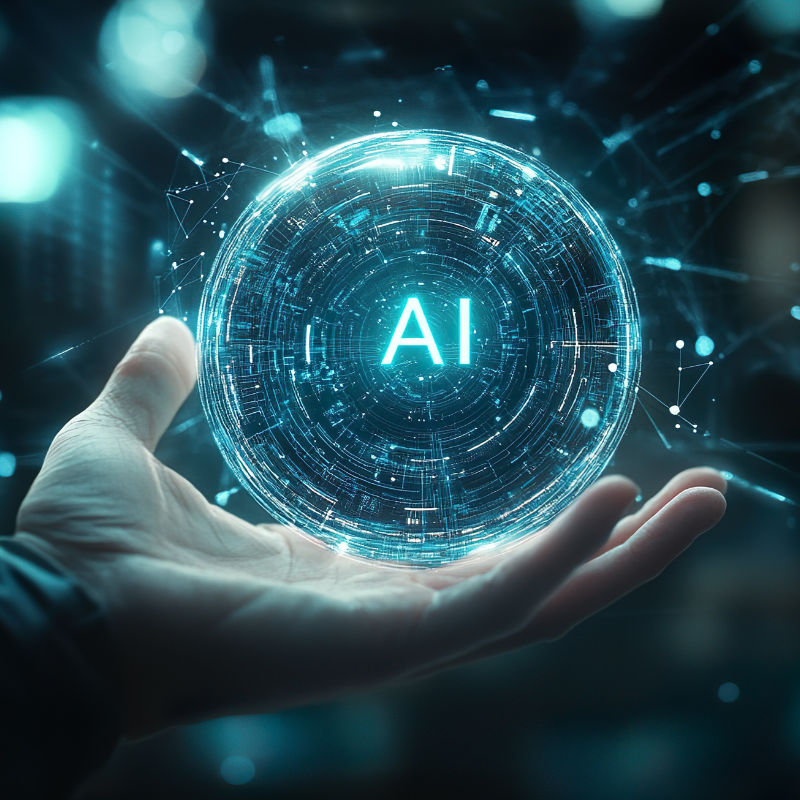Artificial Intelligence (AI) is no longer a futuristic concept—it’s a present-day force reshaping how organizations operate, compete, and grow. From hiring the right talent to optimizing internal processes and enhancing client engagement, AI is driving a new era of efficiency and strategic decision-making across all facets of business.
Revolutionizing Talent Acquisition
Recruiting the right people has always been a cornerstone of business success, and AI is making this process smarter and more efficient. Automated candidate screening tools now analyze resumes at scale, matching applicants to job descriptions based not only on skills and experience but also on cultural fit. Virtual assistants and AI chatbots are increasingly handling the initial stages of recruitment, engaging candidates, asking pre-qualifying questions, and even scheduling interviews, freeing up human recruiters to focus on deeper evaluations.
Beyond efficiency, AI is also helping to reduce bias in hiring. By training models to ignore demographic indicators and focus on qualifications and performance predictors, companies can foster more inclusive hiring practices. Predictive analytics further enhances decision-making by analyzing historical hiring data to forecast a candidate’s likelihood of success and long-term retention.
Optimizing Workforce and Resources
Once talent is onboarded, AI continues to add value through workforce optimization. AI-powered scheduling systems can create efficient shift plans that account for employee availability, labor laws, and fluctuating demand. This ensures that the right people are in the right place at the right time, minimizing both understaffing and overstaffing.
AI also plays a critical role in identifying skills gaps within the organization. By analyzing employee data, AI can recommend targeted upskilling or reskilling programs, aligning workforce capabilities with future business needs. Additionally, dynamic resource allocation tools use predictive modeling to anticipate project staffing requirements and suggest optimal team compositions, improving both productivity and project outcomes.
Enhancing Retention and Performance
Employee retention is another area where AI is making a significant impact. Attrition prediction models analyze a combination of engagement metrics, performance data, and feedback to identify employees who may be at risk of leaving. This allows HR teams to intervene proactively with support or development opportunities.
AI-driven learning platforms are also transforming professional development. These systems tailor training recommendations to individual employees based on their performance, career goals, and learning preferences. Meanwhile, sentiment analysis tools can process employee surveys and internal communications to uncover trends in morale and engagement, offering real-time insights into organizational health.
Elevating Client and Project Delivery
In client-facing roles, AI is enhancing the quality and speed of service delivery. Market and competitor research, once a time-consuming task, can now be automated with AI tools that scan vast amounts of data to extract actionable insights. These insights inform strategic recommendations and help consultants stay ahead of industry trends.
AI also simplifies reporting and documentation. Automated systems can generate project updates, financial summaries, and client-ready reports with minimal human input. When it comes to winning new business, AI can assist in drafting proposals and responding to RFPs by leveraging data from past successful engagements and aligning them with current client needs.
Driving Business Development and Sales
Sales and business development teams are leveraging AI to better understand and engage with prospects. Lead scoring algorithms analyze CRM data to identify high-value opportunities, allowing teams to prioritize their efforts effectively. Personalized outreach, powered by AI, ensures that communications are tailored to each client’s interests and behaviors, significantly improving engagement rates.
AI also supports dynamic pricing strategies by analyzing market conditions, client budgets, and competitor pricing. This enables businesses to remain competitive while maximizing profitability.
Streamlining Back-Office Operations
Behind the scenes, AI is transforming administrative and compliance functions. In finance and HR, AI automates tasks such as invoice processing, payroll, and expense management, reducing errors and freeing up staff for more strategic work. Compliance and risk management are also enhanced, as AI systems monitor changes in labor laws and tax regulations to ensure ongoing adherence.
Fraud detection is another critical application. AI can flag anomalies in expense reports and financial transactions, helping organizations maintain financial integrity and prevent losses.
Takeaways
AI is not just a tool—it’s a strategic partner in modern business. By integrating AI across departments, organizations can unlock new levels of agility, insight, and innovation. As the technology continues to evolve, its role in shaping the future of work will only grow more profound.
Contact Us
For more information on this topic, please contact a member of Withum’s Staffing and Consulting Businesses Services Team.




